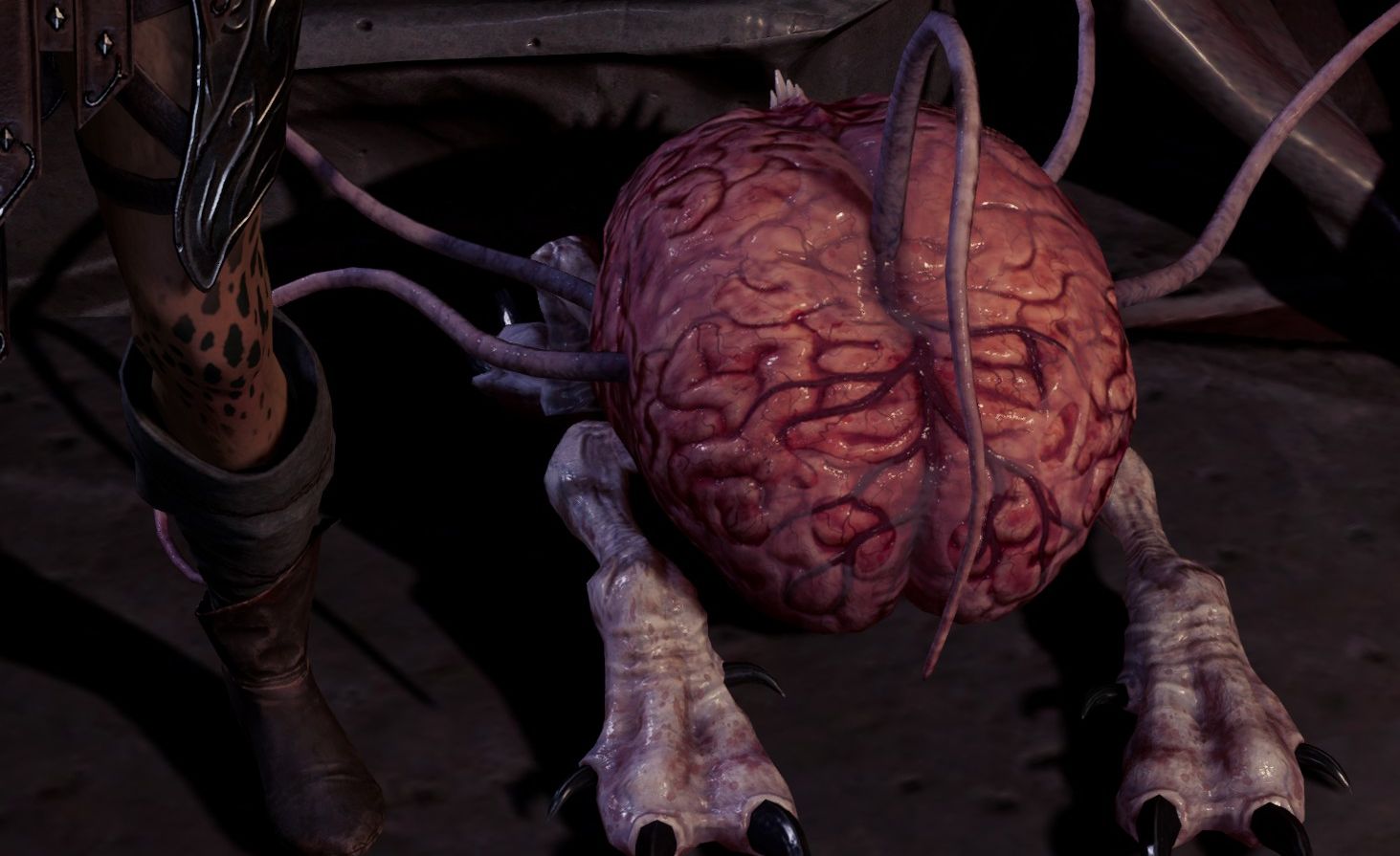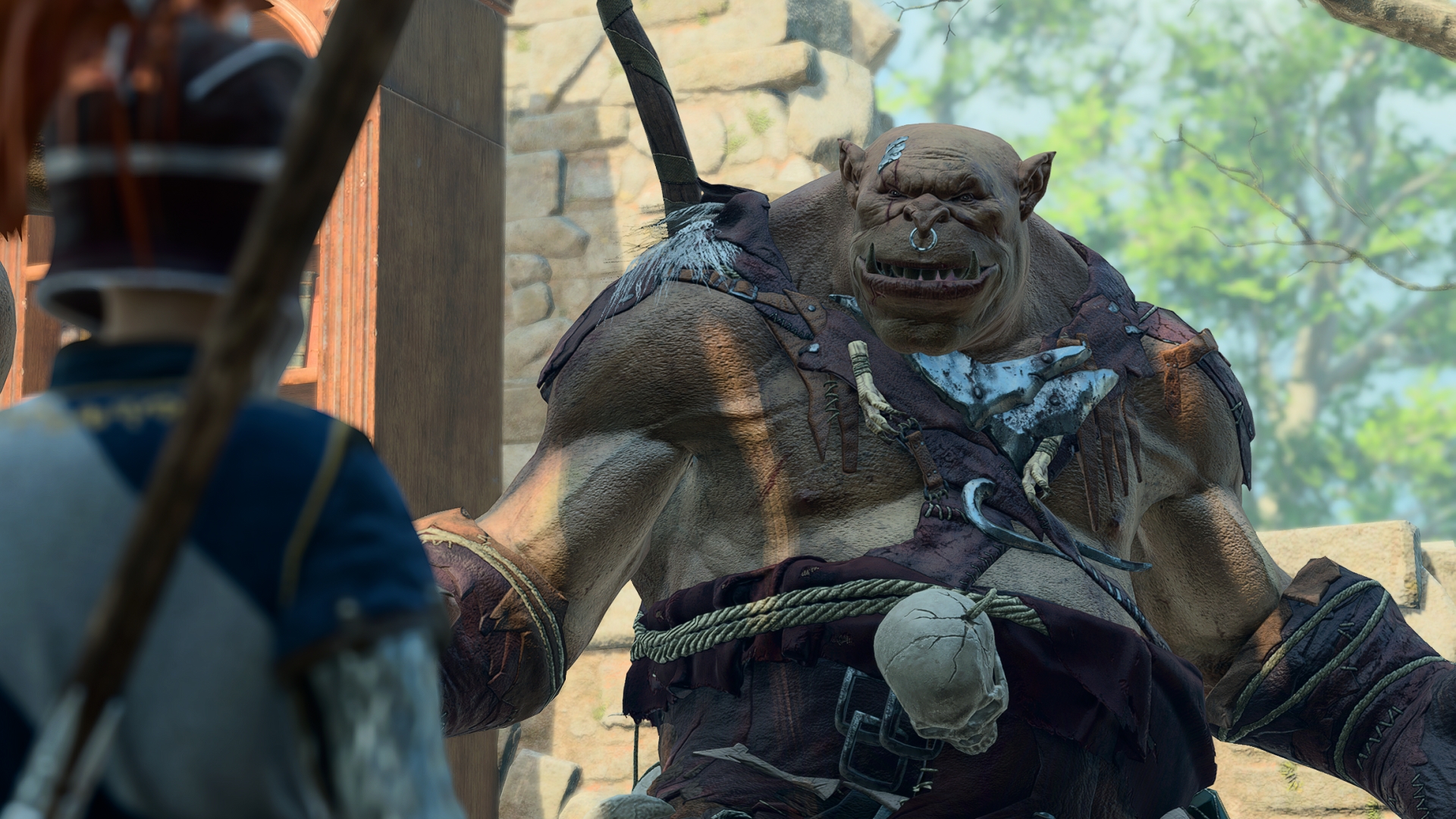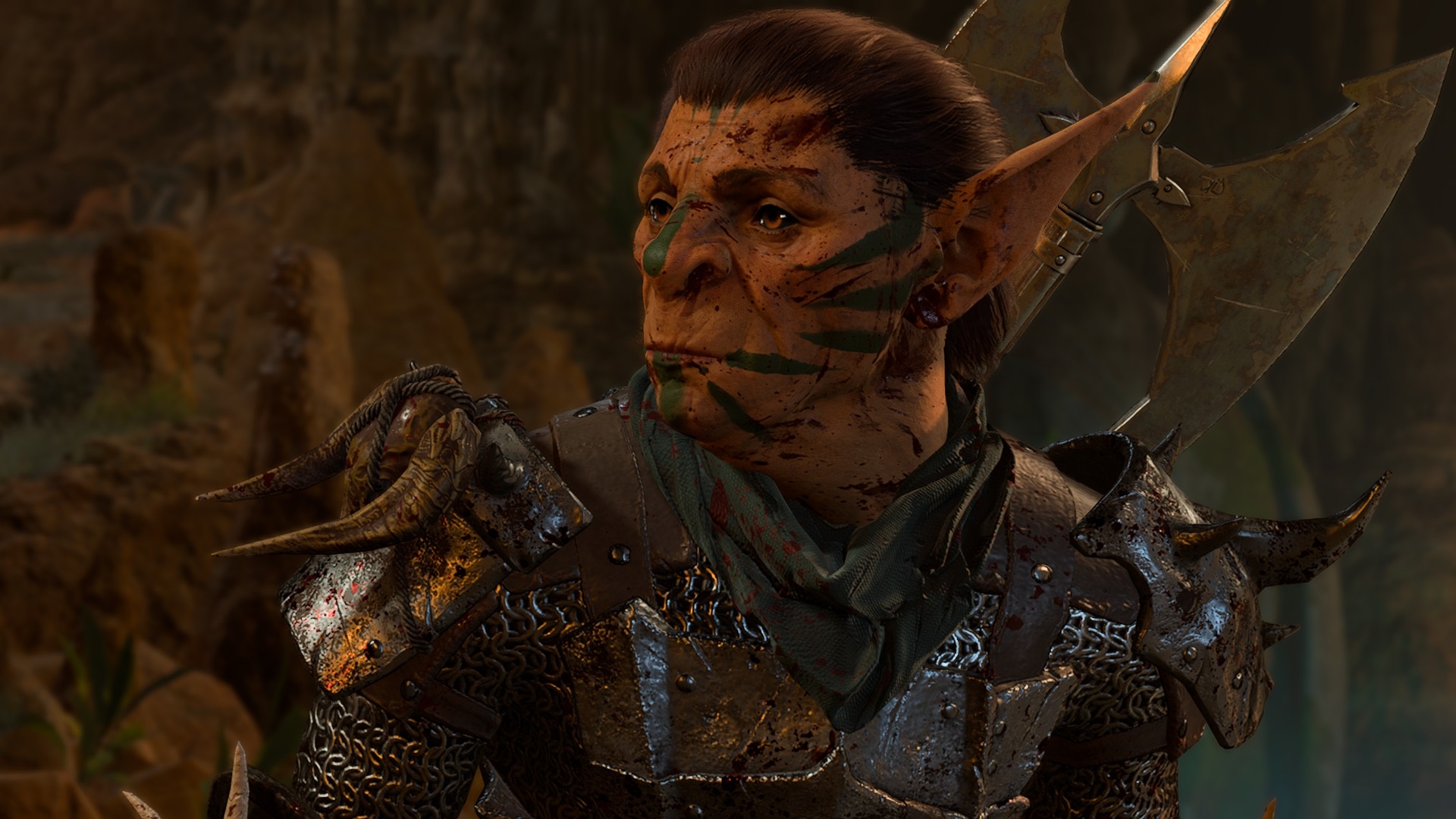I'll be a sweaty little D&D powergamer in Baldur's Gate 3 and you can't stop me
To min-max or not to min-max RPG? It's not even a question for me.

One of my first homes on the internet was the official D&D 3rd Edition Character Optimization Forums. It was a place for weirdos who'd read every book cover to cover, and it had two sides. One was helping people make a cool character that would also be effective in an edition of D&D that was notoriously full of bad build choices. The other was just absolutely breaking the game: finding strange combos among dozens of rulebooks that used and abused the "rules as written" to spit on "rules as intended" and crank out unplayable combos that did things like make a guy who could throw boulders hard enough to kill a god, or a kobold who could abuse shapeshifting to become so strong even boulder guy couldn't kill them.
So now, more than two decades later, I am really quite excited to be a little powergaming freak in Baldur's Gate 3. Unlike PC Gamer editor Robin Valentine, who recently argued that you'll have more fun if you don't min-max in Baldur's Gate 3, I'm going to squeal like a hog in mud while I min-max just the most absolutely, positively busted characters I can using every ounce of power this videogame gives me. That's my kind of fun.
For me, the assurance that my characters will do their jobs is a source of comfort. I won't worry about lost time or closed-off options. Coming up with a cool idea for a character (lightning-touched guy) and then figuring out the most mechanically optimal way to express it (cleric 2/sorcerer 10) is the foundation of my fun in games like Baldur's Gate 3. It's part of the roleplaying for me, not something that detracts from it. So I encourage you to powergame.
The case for powergaming
I've been playing D&D 5th Edition (5E), the rules that Baldur's Gate 3 is adapting, for over a decade now. 5E is the most popular version of the tabletop game in its nearly 50-year history, and I'd bet actual money that more people playing Baldur's Gate 3 will be familiar with its rules from the jump than those who played the 3E-based Neverwinter Nights games or the AD&D 2E-based Baldur's Gate and Icewind Dale were.
Delving into a decade of character design best practices and planning out a powerful build from the start gives me something to anticipate as I play—a reward I can work toward. It makes me happy to finally complete some weird optimized monster who turns the final boss into paste with a couple of smite attacks. I'm going to make a half-wood elf barbarian with 16 Strength and 16 Constitution with the Mobile feat who runs a hundred miles an hour. Then I'm going to dip 4 levels in rogue so I can spend a bonus action to run twice as far every single turn, weaving between every enemy on the field like The Flash and killing their big cool spellcaster in the first round. Or maybe I'll become an elk heart barbarian so I can just run everyone over instead. It's fun to get ahead of the system, to break the expected norms of how I'm "supposed" to play.
When you get into an RPG, having an optimized, even powergamed build is a kind of insurance policy against wasted time.
One of Robin's key points is that optimized builds can be weak at early levels, before their weird combination has come online, making early fights hard and later encounters too easy. I don't necessarily trust that Larian has designed a smooth power curve in the first place, though, or that I'd even enjoy the power curve Larian came up with. You only need to look at Pathfinder: Kingmaker's infamous spider swarms for a reason why the start of an RPG like this is often the hardest part.

The first time I played BG3's early access build I rolled up a flavorful weirdo, wandered right into some intellect devourers, and died. I don't think a better-planned build could have fared worse, and part of powergaming is achieving good or at least competent results at every stage of the build.
The biggest gaming news, reviews and hardware deals
Keep up to date with the most important stories and the best deals, as picked by the PC Gamer team.
When you get further into an RPG, having an optimized, even powergamed build is a kind of insurance policy against wasted time. Big combats can take an hour to resolve, while losing those fights and having to try again is a painful waste of limited gaming time. "The cost of not being optimized enough is a lot of time and frustration," as game developer Josh Sawyer (Icewind Dale, Fallout: New Vegas, the Pillars of Eternity games) said in a video response to Robin's article.
I will increase the thing
The kind of powergaming you can do in Baldur's Gate 3 is pretty tame. While earlier versions of D&D called for my 3rd Edition Forum Guy hyper-optimization, 5E is fairly friendly to just figuring it out as you go, as Robin points out. The degree of min-maxing powergamed nonsense we all got up to in the preceding two editions is almost impossible to get away with, because the options available to you are more limited. But I'd argue that it's not so simple that you can do literally whatever you want and still be effective.
The 5E rules may be simpler, but if anything that's an argument for powergaming because the bar for effective min-maxing is even lower. Everyone wants their character to be effective at their job, so why not dig in and find the builds to let them do that? I think that finding the place where a character concept blends with game-mechanical execution is what roleplaying games are about.
So much of what you might call powergaming in Baldur's Gate 3 is going to come down to small choices. If I tell you that a one-level dip in ranger or druid for the goodberry spell will make your life domain cleric more useful to the party then that's a really simple choice with a big impact. A single level of barbarian on a moon druid is the iconic "bearbarian" build in 5E and will make your Wild Shapes extra nasty.

However, If you want to fulfill certain archetypes you'll need to know when and where to exploit the rules for maximum impact. A really important example is the melee spellcaster, your classic fighter/wizard swordmage. You can do something similar without a ton of pre-planning by picking the basic valor or blade bard, but the fighter's eldritch knight archetype is actually going to feel a bit weak if you play it straight out of the box because none of your vital stats will be quite up to par.
Larian knows you can make a bad character. That's why you can respec in Baldur's Gate 3. They want you to be able to experiment, and they want you to feel like your time wasn't wasted because you misunderstood the mechanics. And I fully intend to abuse that respec. I'll figure out a really fun build that peaks in power for the hours before you get to respec and then another, separate build that peaks in the hours after the respec.
It also seems like the team at Larian is planning on a certain degree of powergaming from its playerbase. A version of a classic D&D item in the early access version, the Warped Headband of Intellect, shoots your Intelligence up to 17 no matter what it was before. So yeah, I'm absolutely going to dump my eldritch-knight-to-be's Intelligence all the way down to 8 knowing that there's an item out there waiting to give me nearly 10 free stat points.

Striking the balance
What we call powergaming in videogames is totally normal behavior, but in tabletop gaming it can take on an antisocial character. When one player puts their personal success over the fun of the group, that can cause a lot of friction. Roleplaying is a collaborative medium, after all.
But everyone has to play by the same rules in a CPRG. Even playing co-op, there's no DM to balance the encounters or make up some interesting outcome when you get defeated in battle. There's also no risk of being an absolute table goblin, just stressing yourself out over whether having a Dexterity of 12, 13, or 14 is optimal for your build.

However, I agree with Robin that rigorous min-maxing can lead to a bad outcome at its absolute extreme. Civilization 4 designer Soren Johnson brings up this concept often: given the opportunity, a certain kind of player will optimize the fun right out of their own games, and then complain about it. Robin's advice is ultimately good advice because there's a middle ground here. An experienced roleplayer making an obvious archetype won't go wrong by just picking default options in Baldur's Gate 3. But that doesn't mean carefully planning a build with the help of online guides won't improve the experience. I'd argue that min-maxing will improve your experience right up until the point you stop enjoying the exercise of designing the best build to execute your concept—at which point, let it go.
As always, considered moderation in all things is a guaranteed path to joy. Now, if you'll excuse me, I'm off to write a very sternly worded letter to Larian complaining they've left the core Dodge action out of Baldur's Gate 3 and it's making the early game combat feel awkward.
Jon Bolding is a games writer and critic with an extensive background in strategy games. When he's not on his PC, he can be found playing every tabletop game under the sun.

